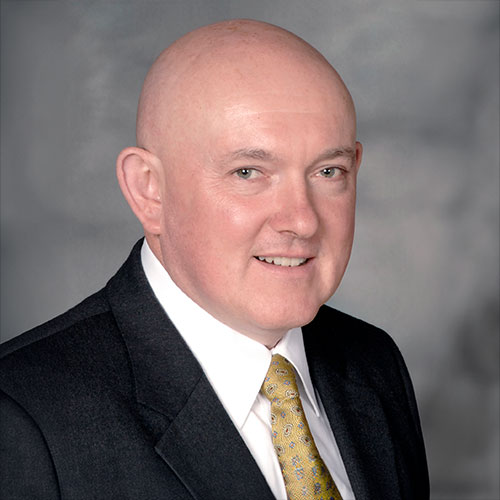
Global Perspectives: Betsy Price on being Fort Worth mayor, governing and bipartisanship
Betsy Price recently ended her term as mayor of Fort Worth, a position to which she was first elected in 2011. As the city’s 44th mayor, Price served five terms, the city’s longest-serving chief executive. Fort Worth, the nation’s 13th-largest city, remains among the fastest-growing communities in the country.
Price initiated a broad agenda based on fiscal responsibility, accessibility, transparency and accountability. She emphasized economic development, strengthening education, promoting public safety and improving mobility. In June, Price announced her candidacy for Tarrant County judge, the county’s top elected post, after the incumbent said he wouldn’t seek reelection.
Price graduated from Arlington Heights High School and earned a bachelor’s degree in biology from the University of Texas at Arlington. She has been an active leader in the Fort Worth community, serving on numerous boards, commissions and professional associations. She ran her own car title and licensing business for 17 years before her election in 2000 as Tarrant County tax assessor.
The Federal Reserve Bank of Dallas recently hosted Price as part of the Bank’s Global Perspectives speaker series. This series was launched at the beginning of 2016 with the objective of bringing leaders from the worlds of business, academia and policymaking to the Dallas Fed to share their insights on leadership, and global, national and regional developments.
Price and Dallas Fed President Rob Kaplan discussed her political career, the challenges she faced in office and the need for bipartisanship to get government business done. The following are excerpts from their conversation, edited for clarity, and presented by topic.
On deciding to run for mayor:
Price: I never did say, “I think I’d like to run for mayor.” I got recruited to run for mayor. We had tremendous success in the tax office and got recognized not just in the state but all over the nation. People in Fort Worth started coming to me and saying, “When Mayor [Mike] Moncrief retires, you’re going to run for mayor, right?” And I said, “I don’t think so. That’s a different beast altogether. The tax assessor’s job is more administrative, plus it has a nice salary and, as you know, the mayor’s [job] is more demanding and virtually no salary.”
But it’s never been about the money for me or for my family. We’ve been blessed to be able to do what we wanted to do within reason. I mean, there were times my husband said, “I wish you at least could pay your own dry-cleaning bill,” because the mayor makes $29,000. But I kept getting recruited, and I said no for six months. Finally, I went to my minister and I went to some of my associates and they said, “You’ve got to do this.”
And my husband reluctantly said, “Yeah, I think they’re right. You need to solve the pension problem at the city and solve the city’s financial issues.” So, that was the call.
On biggest challenges as mayor:
One of the first ones was the city’s pension plan. The year I took office, the city’s budget was $50 million underwater, coming out of the ’08, ’09 [recessionary] slump. The pension plan was millions of dollars underwater with no cap on it. The liability was growing every year because it was an outdated pension system.
It was a pension that was established when the city didn’t pay well, and so it was generous. Our pay had gone up, but our corresponding response on the pension had not. We were looking at hitting 25 percent of our payroll in pension payments, and that’s not sustainable for a city. Fort Worth had the highest tax rate of any major city in the state, which made us not very competitive. So, that was one of the first things we had to tackle. We tackled the pension not [just] once, but we had to do it again [a second time] about three years ago.
We knew it would have to be done incrementally. We made our final change three years ago and got it adopted, and we’re the only Texas large city that did it locally without having to go to the Legislature and get direction to do it. First, we changed the overtime rules because what was happening was overtime was calculated into your pension. We just made incremental changes like that.
The first vote we took to change it was on the overtime, and the police officers and firefighters really came out against us. I mean there were hundreds of them standing in the audience saying, “You can’t pass this.” And I said, “Well, I campaigned on this, and we’re going to solve it or the city’s going to go under. You won’t have your pension and we won’t be able to afford it.”
And I went home that night. My husband said, “You better not be speeding. You’ll get a ticket, and if we have a fire, nobody’s coming.” But then we finally made them [police and fire departments] understand this was for their own good. Now, they’re big backers of mine, and when we passed the second [round of] changes to change their interest and several other things, they voted 95 percent to pass it.
What I learned from that experience was you’ve got to get major buy-in from the public because we went to the public and said, “Here’s how this impacts the services the city can deliver to you.” What it took was a strong grassroots effort of citizens saying you make these changes and we’ll support you. And it gave my council members the background that they needed to stand up and support this, too.
On promoting the region:
I’ve always believed that we’re stronger as a region. We are the fourth-largest metropolitan region in the nation, directly behind Chicago, and when the census comes out, we may very well eclipse Chicago as a metropolitan region this time.
I’ve always thought people don’t see borders in North Texas. They go to Dallas for dinner and they live in Fort Worth, or they work in Dallas and live in Fort Worth or they live in Dallas and come here for museums and dining and the Stockyards; they just don’t see those borders. So why not work this as a bigger region?
I was fortunate that Mike Rawlings, the former mayor of Dallas, was elected the same day I was. Mike has a great approach on regionalism. We got to be good friends and, of course, the real anchor there is that both cities co-own DFW International Airport, one of the busiest airports in the nation. It’s a huge economic engine for us. And then also, sitting directly between Dallas and Fort Worth is I-35—what used to be called the NAFTA, now the USMCA highway—between our two trade partners [Mexico and Canada]. [NAFTA is the former North America Free Trade Agreement, reconstituted in 2020 into the USMCA, the United States–Mexico–Canada Agreement.] It generates nearly $10 billion for our economy and for Mexico, right at $9 billion.
We knew we had to sell this area as a region, we knew we could travel with the airport, and anybody who knows me knows I’m going to promote Fort Worth first. In fact, I always said, “This is the FWD region,” and it drove Mayor Rawlings crazy. But the reality of it is, if Dallas was competing for something and we weren’t, we were glad to help them and vice versa. We traveled a whole lot together.
It wasn’t unusual for Mike and me to be in London or Mexico or even Australia or Abu Dhabi selling the city and selling the region. I was quite happy if Plano, Frisco and Dallas got something, and they were equally happy if Fort Worth and Southlake and Grapevine got something. It was a collaborative determined approach.
On solving problems and bipartisanship:
In city government, we always say police officers, firefighters and potholes aren’t partisan. You’ve got to deliver the services people need. Good governance happens in the middle. You lean right or you lean left, but you’ve got to be able to bring your values to the table and ask what’s best for our citizens. It’s not parochial. It’s not what’s best for my district as a councilperson, it’s what’s best for the city of Fort Worth.
I think service above self and collaboration are lost in this country. I think we’ve gotten too far on the extremes of both ends. We’ve been fortunate in Fort Worth in that we’ve been able to keep a pretty good even balance and be congenial with each other and come to the table and discuss and settle issues. I think more people at the state and at the federal level need to realize we don’t get anywhere if we’re not going to collaborate. You can’t do it in business, and you sure can’t do it in government.
I think far too many people have truly become politicians; it’s become their career, not their passion and not their service. A long time ago, people went into this office not for their next election but to make things better, to really serve their community. From my point of view, that’s lost on lots of people right now, and the areas where it isn’t lost are the ones that seem to be faring the best.
Of course, the flip side of that is we can’t be all things to all people, and government’s got to be there to assist and facilitate, not to run your life and not to do it all for you, but rather to be there as a resource if you need it.
About the Author
Mark A. Wynne
Wynne is vice president and associate director of research in the Research Department at the Federal Reserve Bank of Dallas.
The views expressed are those of the author and should not be attributed to the Federal Reserve Bank of Dallas or the Federal Reserve System.

